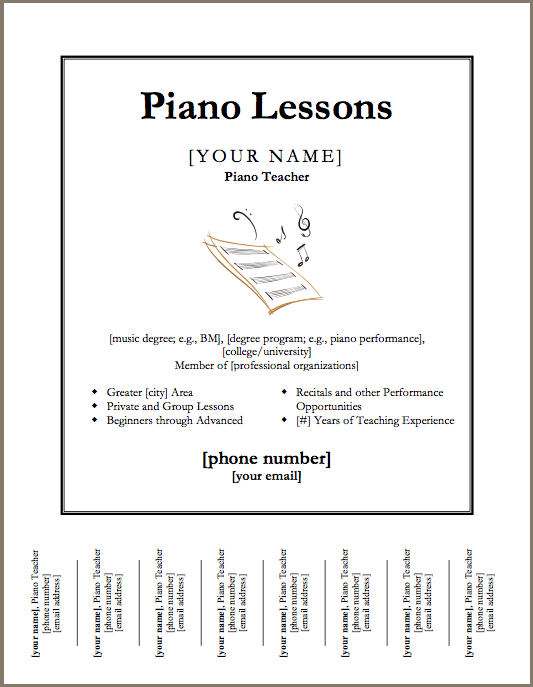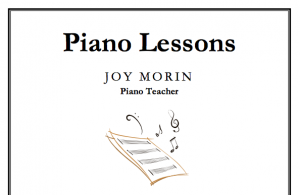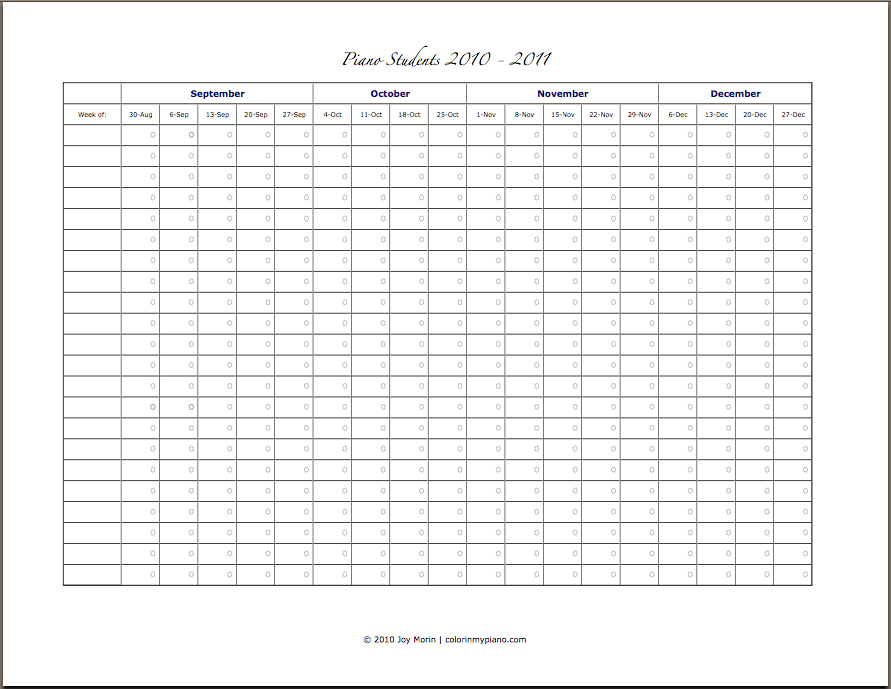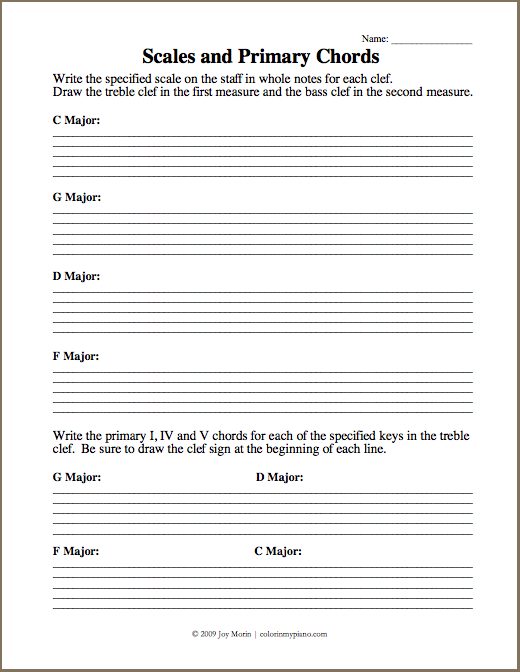 Developing a good sense of rhythm is one of the most challenging parts of being a piano teacher. It’s not something that arrives overnight, and it’s something that must be maintained as the student advances to music with more advanced rhythms and time signatures. It truly is something that must be developed.
Developing a good sense of rhythm is one of the most challenging parts of being a piano teacher. It’s not something that arrives overnight, and it’s something that must be maintained as the student advances to music with more advanced rhythms and time signatures. It truly is something that must be developed.
I’d like to suggest that there are three components to having and developing what we so loosely refer to as a “good sense of rhythm”:
- A sense of beat. This means the ability to maintain a steady beat/pulse. This is probably the most common and most basic problem that students encounter when it comes to rhythm issues in their piece. The inability to maintain a steady beat/pulse is crucial for developing #’s 2 and 3 below.
- A sense of rhythm (i.e., note values). This involves being able to accurately identify and execute the various note values within a variety of tempi. Beginner students may struggle with placing eighth notes within a quarter note beat, while more advanced students may struggle with syncopated rhythms or playing 2 against 3. It is nearly impossible to develop a sense of rhythm without first developing a sense of beat (#1 above). Continue reading “Developing a Good Sense of Rhythm”






 June is over (summer is going by so quickly!!), and so is the
June is over (summer is going by so quickly!!), and so is the 
 Just added to the page of free
Just added to the page of free 


 I was talking to a parent after teaching a lesson yesterday, and she told me that her older daughter (who plays a few different band instruments, but is not currently taking piano lessons) is attending a band camp for high schoolers this week. Upon arrival, the camp gave her daughter a theory placement test, and she scored a 2B (I’m not sure what leveling system they were using, but her mother had expected her to score higher). Her mother was a little perturbed because she has paid for many years of lessons for her daughter, but only a few of her daughter’s past teachers taught theory as component of taking private lessons. She wondered, shouldn’t my daughter have gotten more theory training than this? What have I been paying all this money and time for?
I was talking to a parent after teaching a lesson yesterday, and she told me that her older daughter (who plays a few different band instruments, but is not currently taking piano lessons) is attending a band camp for high schoolers this week. Upon arrival, the camp gave her daughter a theory placement test, and she scored a 2B (I’m not sure what leveling system they were using, but her mother had expected her to score higher). Her mother was a little perturbed because she has paid for many years of lessons for her daughter, but only a few of her daughter’s past teachers taught theory as component of taking private lessons. She wondered, shouldn’t my daughter have gotten more theory training than this? What have I been paying all this money and time for?
 Just added: a new free, printable worksheet called:
Just added: a new free, printable worksheet called:
 Your hands are cold and shaky, your heart is racing, and you find it hard to breath. Are you sick? Are you having a nightmare? No, you’re about to play your instrument in a recital, and the symptoms you are experiencing are due to performance anxiety — better known as stage fright.
Your hands are cold and shaky, your heart is racing, and you find it hard to breath. Are you sick? Are you having a nightmare? No, you’re about to play your instrument in a recital, and the symptoms you are experiencing are due to performance anxiety — better known as stage fright.
 Many of you may remember being required by your piano teachers growing up to practice a certain amount of minutes each day/week. Perhaps your requirement looked something like this:
Many of you may remember being required by your piano teachers growing up to practice a certain amount of minutes each day/week. Perhaps your requirement looked something like this:


 As mentioned yesterday, a new series is being introduced here at Color In My Piano: a monthly forum of sorts, where readers put their heads together a discuss various topics. The success of this series depends on YOU, so please, type away!
As mentioned yesterday, a new series is being introduced here at Color In My Piano: a monthly forum of sorts, where readers put their heads together a discuss various topics. The success of this series depends on YOU, so please, type away!
 At the expense of sounding like an old record, I’d like to express once more (last time, I promise!) how much I’ve enjoyed reading all your comments lately, especially the shared stories on the giveaway post from a couple weeks ago. It’s comments such as those that make Color In My Piano a success and a worthwhile resource for everyone including myself! We have so much we can learn from each other.
At the expense of sounding like an old record, I’d like to express once more (last time, I promise!) how much I’ve enjoyed reading all your comments lately, especially the shared stories on the giveaway post from a couple weeks ago. It’s comments such as those that make Color In My Piano a success and a worthwhile resource for everyone including myself! We have so much we can learn from each other.